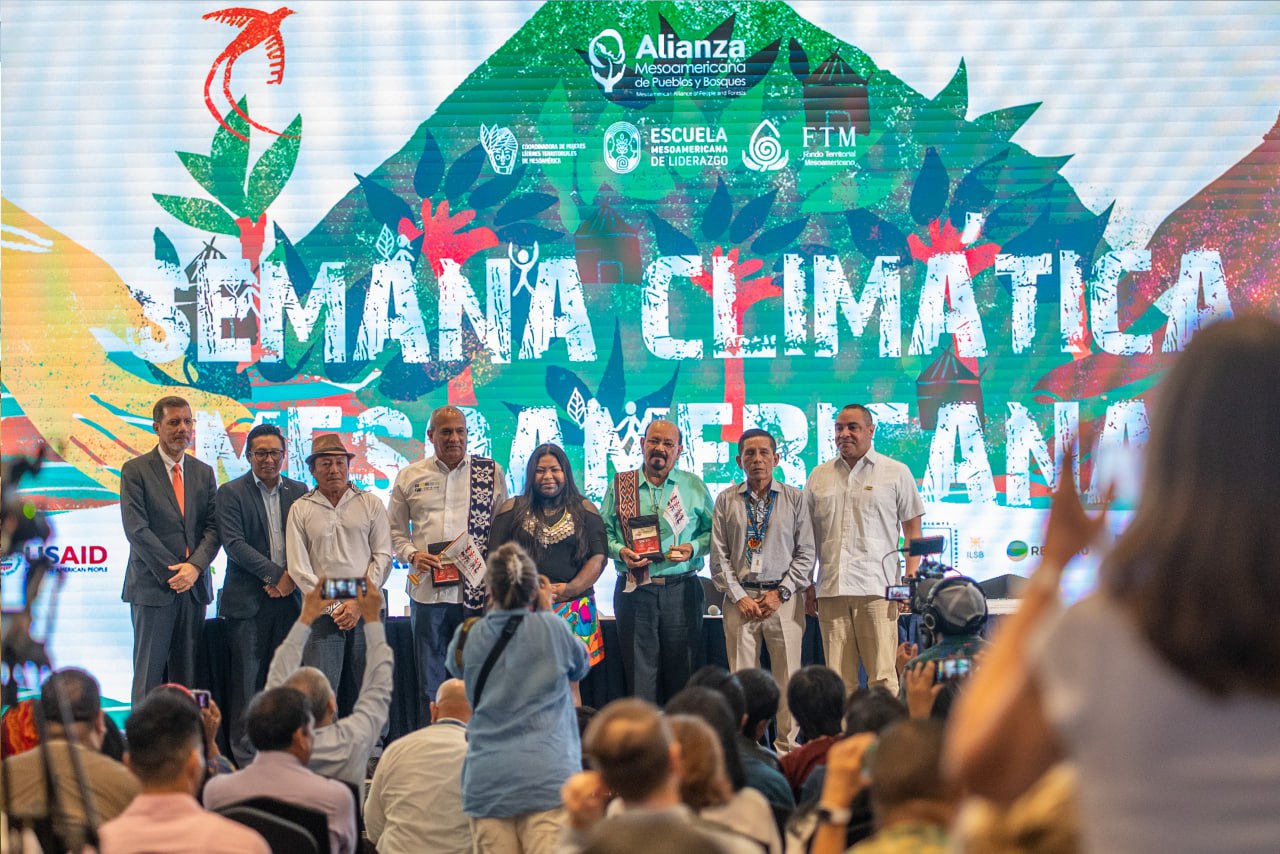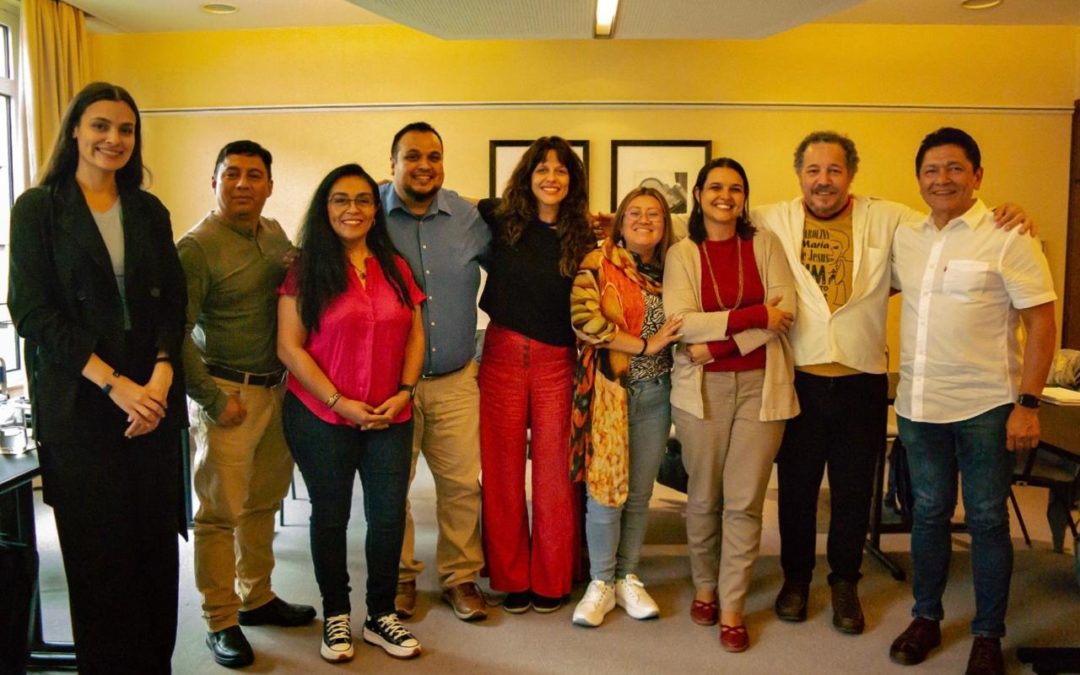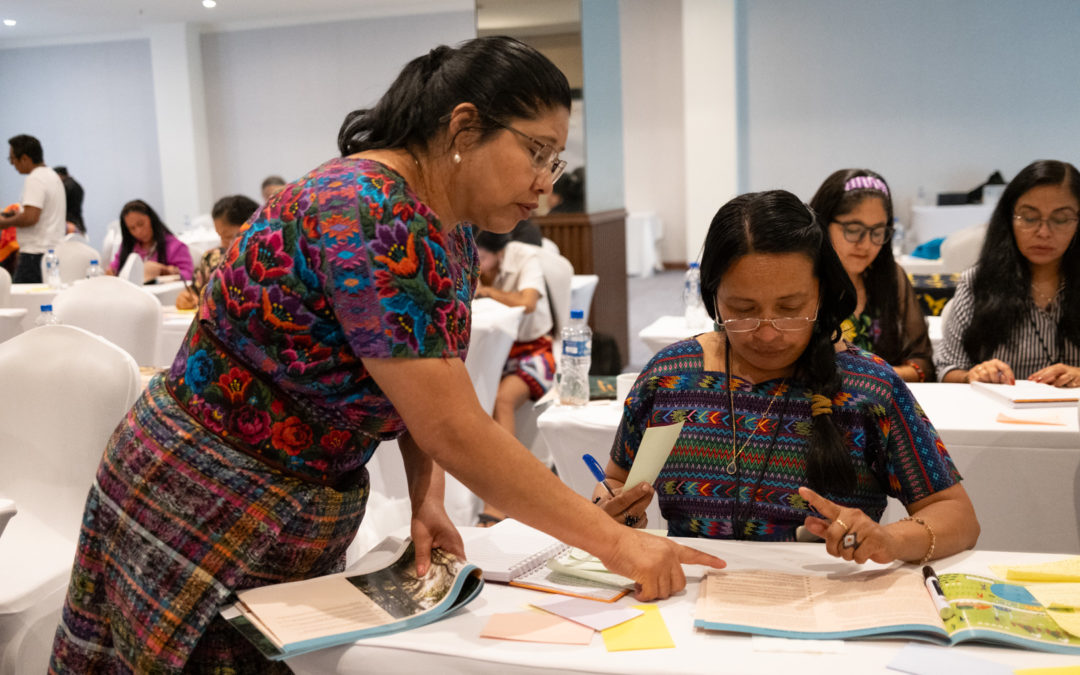The Mesoamerican Alliance of Peoples and Forests (AMBP) led the first Mesoamerican Climate Week held in Panama City from June 13-16, 2023, to promote and highlight the territorial experiences of Indigenous Peoples and Local Communities in forest management, care and conservation.
The event brought together more than 200 people, including 80 leaders from the region and the world. Their voices were united to call for action and to advance direct funding for projects focused on the preservation of their territories. In addition, they had spaces for dialogue with political authorities in the region, NGOs, donors and other civil society organizations to continue protecting forests and ecosystems for the benefit of all humanity.
These four days allowed the creation of a more inclusive, fair and democratic agenda in which the voices of the territories were able to express themselves with ownership and time. The dialogue focused on four different thematic axes: Direct Financing, Capacity Building, Ancestral Agriculture, Territorial Governance and Forest Management. Watch the recorded sessions here
A week of important launches
During the Mesoamerican Climate Week, important launches took place, including the proposal of an additional layer on the rights of Indigenous Peoples and Local Communities (IPLCs) within the ART TREES standard. This approach is based on principles and procedures that seek to drive the high integrity carbon market, based on international and national law agreements. This ensures the free and informed inclusion and effective practice of safeguards in terms of IPLC rights in a preventative rather than reactive manner. The proposal was a collective effort of indigenous and community leaders from across the region, who took on the task of defining these guidelines in order to be able to exercise their self-determination when governments and companies seek coal hosted in their territories.
The Mesoamerican Coordinator of Territorial Women Leaders presented the Regional Gender and Climate Change Plan as a key initiative to address current challenges in the region. This plan is the result of a co-creation process of several months and includes proposals to strengthen community organizational models, increase access to land for women, strengthen their production capacities from ancestral agriculture, promote the exchange of knowledge and support initiatives for learning and conservation of knowledge and cultural practices; as well as the creation of secure financial instruments, accessible and adapted to the real needs of our communities.
It also hosted the launch of the second edition of the Rights and Resources Initiative’s (RRI) study Who owns the land in the world?, which analyzes the extension of land legally recognized as owned or allocated by national governments to Indigenous Peoples, Afro-descendant Peoples and local communities around the world.
This study mentions that in the last 5 years, globally, the area of designated and legally titled land increased by only 0.9%. In Mesoamerica, the figure only increased by 0.5%. The slowness of this process alarms people and communities, as we are in a critical window for environmental conservation to act in the face of the climate crisis.
It also points out that more than a third of the region’s total land is managed by Indigenous Peoples, Local Communities and Afro-descendants. In countries such as Guatemala, more than 40% of the country’s total is protected by ICLCs, but only 18.55% is legally recognized. Land tenure by peoples and communities is the most efficient way to mitigate deforestation, even better than national parks and private efforts. However, in the last 20 years, a quarter of its total natural wealth has been lost. The loss is mostly due to cattle ranching, drug trafficking and organized crime.
New opportunities for the region
At the end of the day, the Board of Directors of the Mesoamerican Peoples and Forests Alliance shared some of the conclusions for each of the thematic axes that were addressed during the week.
Regarding the multidimensional perspective on the opportunities and challenges of direct territorial financing for the Mesoamerican region’s IPLCs, it was concluded that the Mesoamerican Territorial Fund is a real and effective mechanism for direct investment in indigenous territories and local communities. It is essential to have pre-investment financing to strengthen local capacities in project formulation, monitoring and documentation of activities. Likewise, funding exercises must recognize the economic value of the local actions they are carrying out for territorial governance.
The IPLCs are not only beneficiaries, but actors and subjects of transformation capable of overcoming inequality gaps and historical lags. Several leaders such as Juan Carlos Jintiach from the Global Alliance of Territorial Communities (GATC) shared their views on this topic.
“Give me the conditions to sit at the table. Don’t see me as a beneficiary, but as a partner of life. I give oxygen, I give my life for the fight against climate change,” Jintiach assured.
The relevance of intergenerational dialogue between elders and youth in efforts to combat climate change in the territories was also highlighted. The Mesoamerican Leadership School (MLE), one of the AMPB’s semi-autonomous units, was recognized as an expression of the importance of the preservation of nature for the achievement of positive sustainable development for the IPLCs. And it was emphasized that capacity building and training of young people is a priority for us and should be a priority for cooperation.
Regarding capacity building and leadership building on climate change from indigenous-local youth in Mesoamerica, the importance of integrating youth in the development, negotiation and advocacy processes of community organizations was emphasized.
“Many times the youth are there, but they are not listened to. We want firm spaces to work together,” said Yanisbeth Gonzalez (MLE).
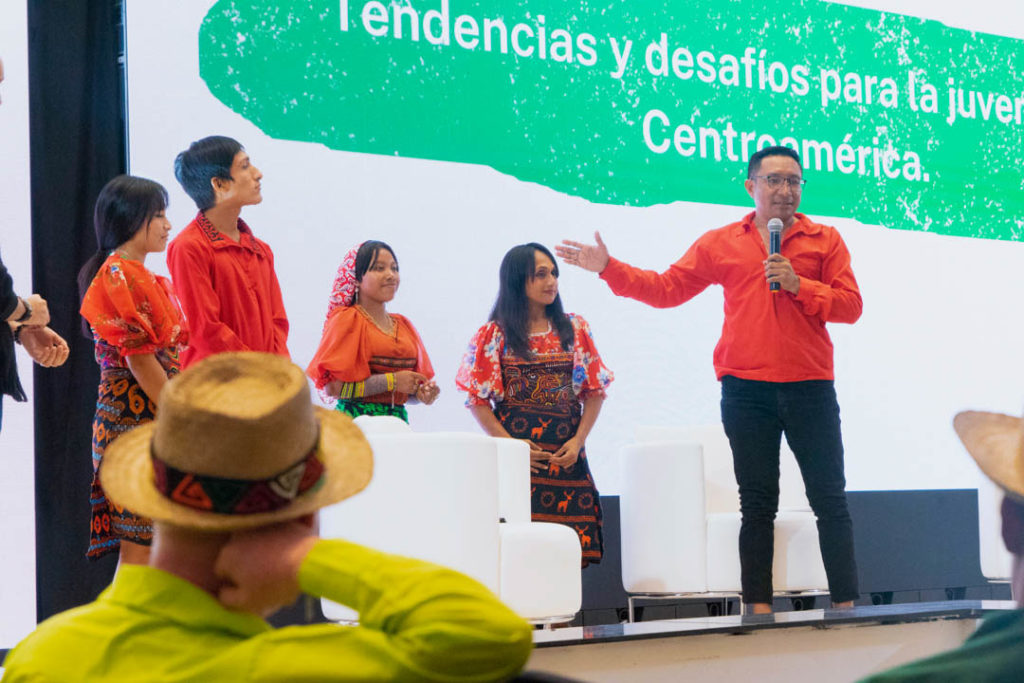
Regarding the role of indigenous women and local communities as a source of traditional knowledge in agriculture and other practices that benefit climate change management, it highlighted the need to position their particular agendas in the processes of dialogue, participation and negotiation. Likewise, the importance of reviewing and influencing state policies to guarantee the effective participation of women in the development of their territories was highlighted.
“We are looking for women not to be left out of governance, we are looking for women to be protagonists. We are looking for women to be able to take part in decision-making,” explained Sara Omi, President of the Coordinating Committee of Women Territorial Leaders of Mesoamerica (CMLT).
Regarding the strengthening of territorial governance as a solution to the growing citizen insecurity and non-compliance with the IPLCs, the need to develop and support participatory actions from the community worldview was discussed, to mitigate the territorial impacts derived from disasters whose causes and responsibilities are, for the most part, outside the territories.
It is necessary to have a Regional Observatory on Violence and Criminalization of Leaders to build a model to support the legal aspects, that makes visible and attends to the impacts on the community and avoids re-victimization. In addition, it is transcendental to strengthen governance to reduce territorial insecurity, and to investigate the complex causes of violence.
“The struggle is won through the sustained and continued defense of our lands and territories, and the best way to do this is to strengthen territorial governments and our traditional governance systems,” shared Christina Coc, who is part of the Maya Leaders of Southern Belize, at the climate justice dialogue.
Throughout the event, a call was made to the media to work closely and with data to undermine the discourse that criminalizes territorial efforts. At the same time, to the organizations, research centers and donors that support PICL to continue in the efforts to achieve cooperative and inclusive approaches.
“If you, the big donors, don’t change your vision, we are not going to solve the problems. We live under the same roof, we eat at the same table and when we go to the other world we go to the same land, I ask you for unity, sisterhood, equality, to the struggle,” requested Briceida Iglesias of the Bundorgan Women’s Network.
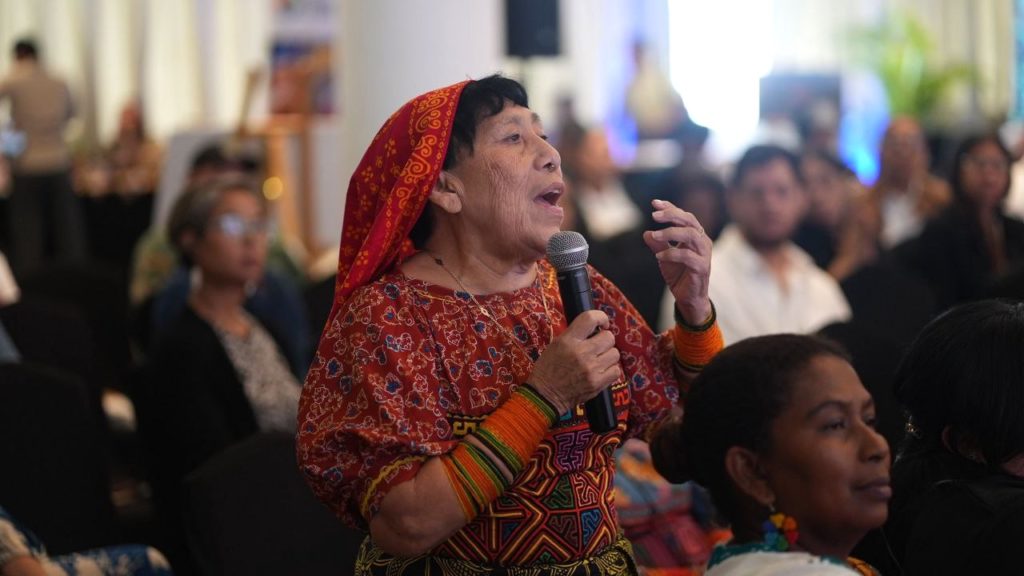
The event was organized by the AMPB with the support of the FSC Indigenous Foundation (FSC-IF) and the Global Alliance of Territorial Communities (AGCT), Indigenous Peoples’ Global Alliance for Rights and Development (IPARD), Rights and Resources Initiative (RRI), Love for Life, Wildlife Conservation Society (WCS), Green Climate Fund, Agroecology Fund, German Development Cooperation, GIZ, REGEN10, Trees, Water& People, Simone de Beauvoir Leadership Institute (ILSB), Emberá Artisan Women’s Association and Environmental Defense Fund.
